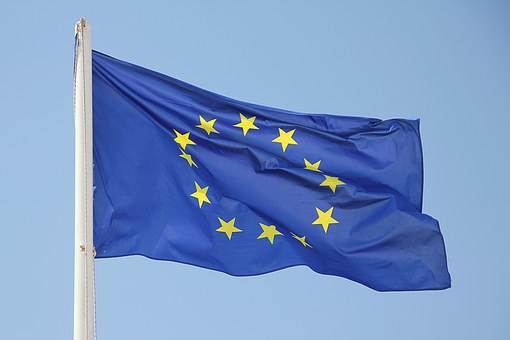 The ECB Chief Economist Philip Lane claimed that despite the Bank's policies are in "good shape" rate cuts should not be ruled out for the future.
The ECB Chief Economist Philip Lane claimed that despite the Bank's policies are in "good shape" rate cuts should not be ruled out for the future.
“Under the most likely scenario, we think the current policies are in good shape," he explained during an interview with Italy's news channel Sky TG24, “If it is necessary to put the rate lower, we will be prepared to do so,” he added.
Lane highlighted that despite everyone basically agreed that setting a negative rate would not be positive, the bank's assessment is that they are "not at that level now".
Eurozone interest rates are on the negative territory since 2014, the bank made the decision as an attempt to face the consequences of the 2008 financial crisis: low inflation and a restrained economic growth. The main purpose is boosting investment, as it makes it less attractive for banks to just park their monetary resources with the ECB, however, despite the Bank's attempt to aid the economy, a persistent low demand and the investor's unwillingness to invest is currently hindering the ECB's goals.
The latest reported Eurozone inflation is currently way behind its target level, at 0.7 percent (year-to-year), being an enormous failure for the bank, as it's failing to comply with its mandate. A lot of things have been written and a lot of explanations have been given concerning the reasons for such a failure, but many attribute this to external factors like oil prices as well as internal factors, like the state of the European labor market and a low aggregate demand. The current inflation target is 2 percent.
“We do not find it acceptable to have inflation around 1.6 percent. So 1.6 percent is not close to 2 percent. That is important,” he added.
The current Euro Area GDP Growth rate is also very disappointing, remaining steady in the third quarter at 0.2 percent.
The main question now is what is the proper course of action. Persistent low rates, besides not being so helpful in terms of aiding the Bank to face the consequences of the last crisis, also leaves little room for maneuver in terms of facing the next big recession. The fact that there has been a huge backlash against other alternative monetary policy tools (like the well-known Quantitative Easing) doesn't help policymakers to feel relieved.
Is spending more the answer?
What's more interesting is that the Eurozone is not the only economy in the developed world that is currently facing this situation. Not only the most recent OECD projections foresee a slower economy than expected for virtually all advanced economies, but it also seems that persistently low rates are not helping a lot in the rest of the world.
Of course many claim, and with reason, that this is conjunctural, attributing it mostly to Trump's trade wars, the Brexit political crisis and the fact that world central banks currently have a tightening monetary policy stance. But that doesn't guarantee that Monetary Policy will keep being a reliable tool in terms of facing a slowing economic growth, especially If Larry Summer's Secular Stagnation theory happens to not be totally unfounded.
That's why Christine Lagarde, being aware of the limitations of employing monetary policy tools in terms of aiding the Eurozone economy, recently called for more government spending.
“In my view, since our challenges are common ones, we must meet them with a common response. This involves moving towards a new European policy mix, which has a number of key elements,” she said during her last speech, “One key element here is euro area fiscal policy, which is not just about the aggregate stance of public spending, but also its composition. Investment is a particularly important part of the response to today’s challenges because it is both today’s demand and tomorrow’s supply,” she added.
Naturally, this option is heavily contested by many eurozone political actors, especially those from countries with fiscal surpluses, like Germany.
Lagarde is set to meet with the French Minister of Finance Paschal Donohoe this Monday.
By 7:57 GMT the EUR/USD pair went up by 0.08 percent, at 1.1030, followed by the EUR/CHF increasing 0.06 percent and reaching the 1.0998 level, while the EUR/JPY went up to the 120.06 level, climbing 0.29 percent.
